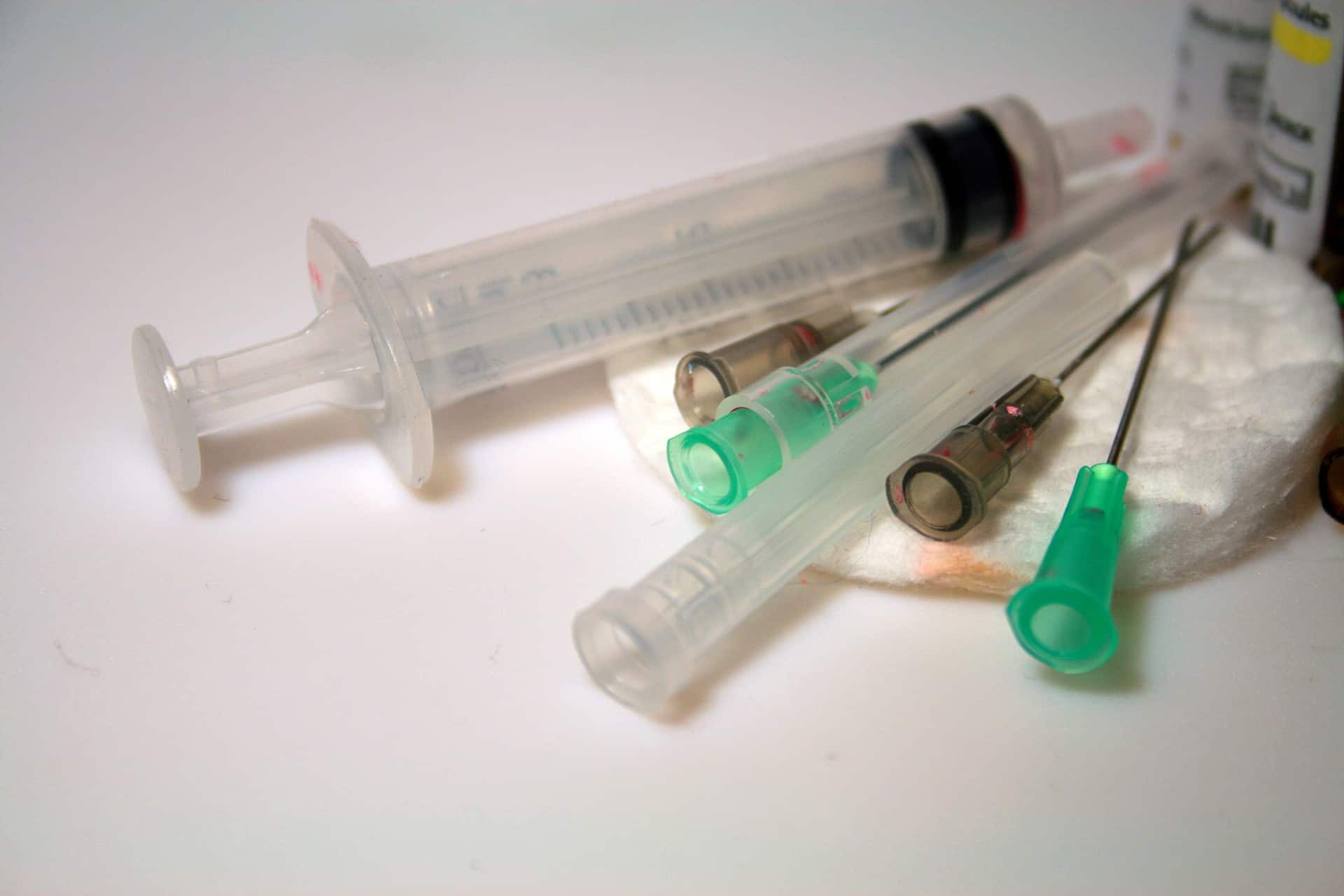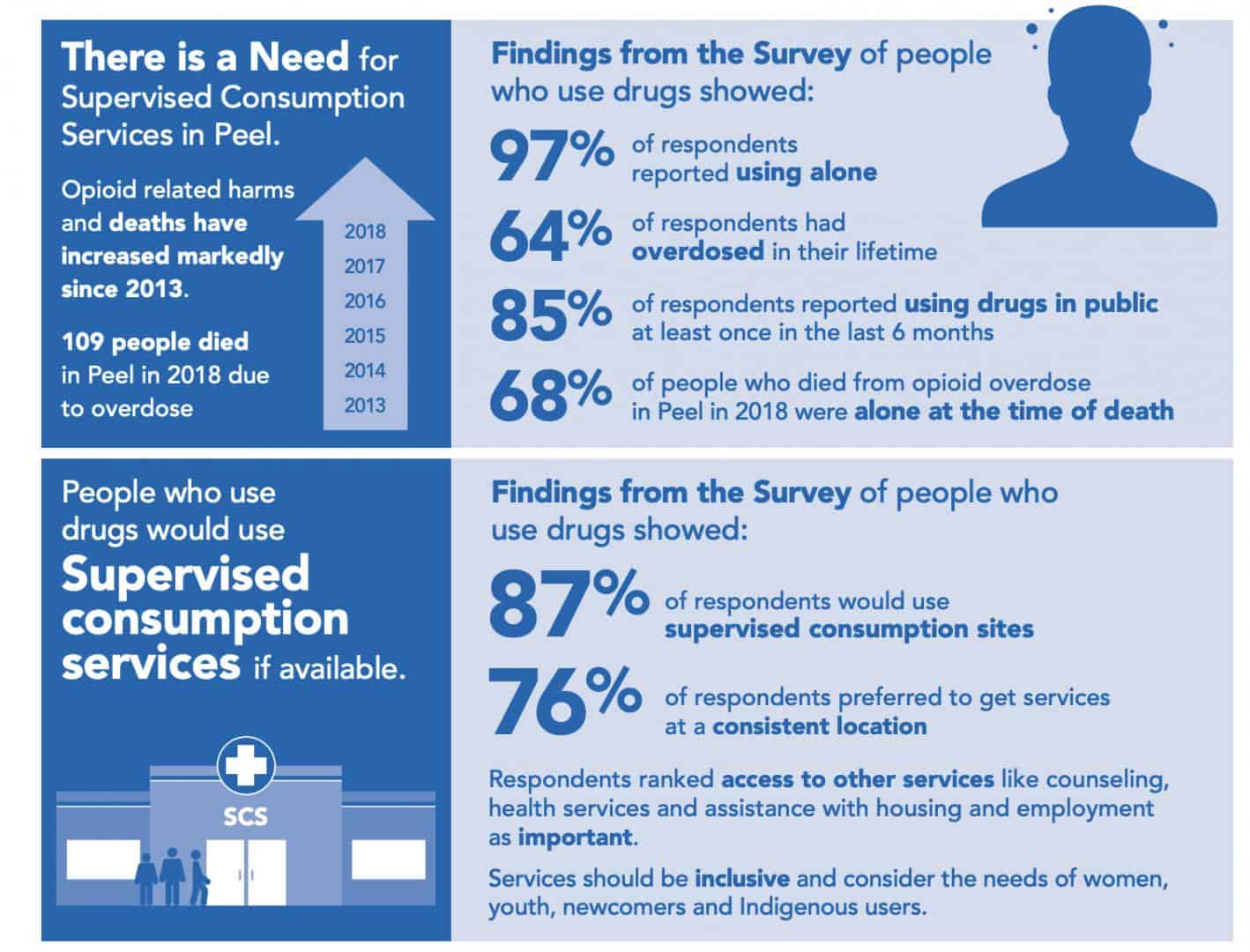Supervised consumption site for opioid users proposed for Mississauga
Published December 18, 2019 at 8:52 pm

With an opioid crisis in full swing, law and policymakers are scrambling to reduce deaths and overdoses, and it appears that one such solution–creating supervised consumption services (SCS)–is being strongly considered in Mississauga.
On Dec. 12, 2019, Region of Peel council endorsed the findings of a recent supervised consumption site feasibility study for the Region of Peel and agreed to establish a planning and implementation group.
The group will launch discussions with the community regarding the next steps and other considerations related to the operation of SCS sites in Peel (Brampton, Mississauga and Caledon).
If the sites are approved, they could take shape in Cooksville in Mississauga and the downtown core in Brampton. Mobile sites that will service less densely populated areas of the region are also a possibility.
While the idea of an SCS in Mississauga might surprise some who believe drug use occurs primarily outside of suburban municipalities, the need for such sites in Peel has been pronounced for some time.
“Canada is experiencing an opioid crisis. Opioid-related morbidity and mortality in Peel have been increasing consistently over the last six years, with a more rapid increase beginning in 2016,” Dr. Jessica Hopkins, Medical Officer of Health with the Region of Peel, told insauga.com in an email.
“Emergency department visits and hospitalizations have also increased.”
Hopkins says that in 2018, there were 109 opioid-related deaths in Peel–a 137 per cent increase from 2016.

A recent survey of drug users revealed that 97 per cent of those surveyed reported using alone, while 66 per cent said they had overdosed at some point.
The survey found that 68 per cent of people who died from an opioid overdose in Peel in 2018 were alone at the time of death.
A substantial 87 per cent of respondents said they would use a supervised consumption site.
“As part of ongoing efforts to consider effective strategies to save lives and reduce harms from opioids, a Supervised Consumption Site Study was completed in Peel. The study explored the perspectives of community members, people who use drugs, and key stakeholders on the acceptability, feasibility, and operational preferences for supervised consumption services in Peel. Study findings indicate a community need for supervised consumption services in Peel,” Hopkins says.
While Cooksville and downtown Brampton have been identified as possible sites for SCSs, specific locations have not yet been determined.
Hopkins says decisions regarding location “will be informed by data and community need for these services.”
“Community consultations and understanding neighbourhood impact will also be key components of the decision-making process regarding site locations,” she says.
As for why Cooksville and downtown Brampton have been selected, Hopkins says the sites were chosen based on data from EMS calls where naloxone was administered and preferences of potential SCS clients.
As for how the sites will work, Hopkins says supervised consumption services are health facilities that allow people who use drugs to bring pre-obtained substances to use in a safe and clean environment with the supervision of trained personnel to prevent or reverse overdoses.
The sites also link clients with other services, such as mental health and addiction treatment, should clients request such assistance.
Supports found in supervised consumption sites in other jurisdictions include primary care, housing, and other social supports.
If people choose to consume drugs at a supervised consumption site, medical staff can act quickly in the event of an overdose.
“Supervised consumption sites are health facilities that prevent overdose deaths by ensuring that substance use is supervised, and trained personnel are available to monitor and reverse possible overdoses,” Hopkins says.
“Supervised Consumption Site staff are trained and have access to naloxone and oxygen to assist with overdose prevention.”
Beyond preventing overdoses, Hopkins says SCS sites also reduce the risk of the spread of HIV and hepatitis C through the provision of clean drug use supplies, reduce safety issues by reducing public drug use and connect people to other health and social services.
“There have not been any fatal overdoses at supervised consumption sites in Canada. There are currently 43 supervised consumption sites operating in Canada with another approximately 40 overdose prevention sites,” she says.
While it’s not yet known exactly where the sites could take shape or when they’ll open, the region has already begun consulting with the community.
Hopkins says 557 community member responses were gathered as part of the study.
“Through the study, community members identified key areas that need to be considered as we move forward with the process for supervised consumption sites in Peel,” she says.
“Community consultations will be a key component of the decision-making process regarding supervised consumption site locations.”
insauga's Editorial Standards and Policies advertising





